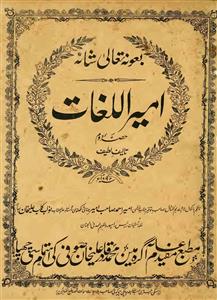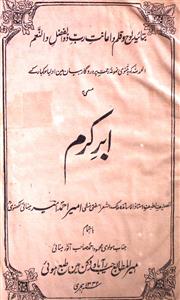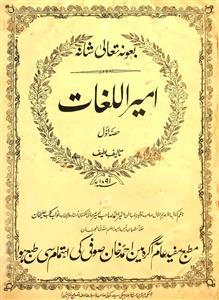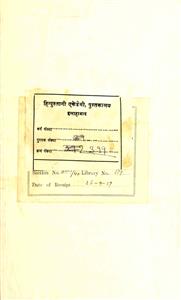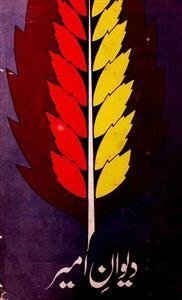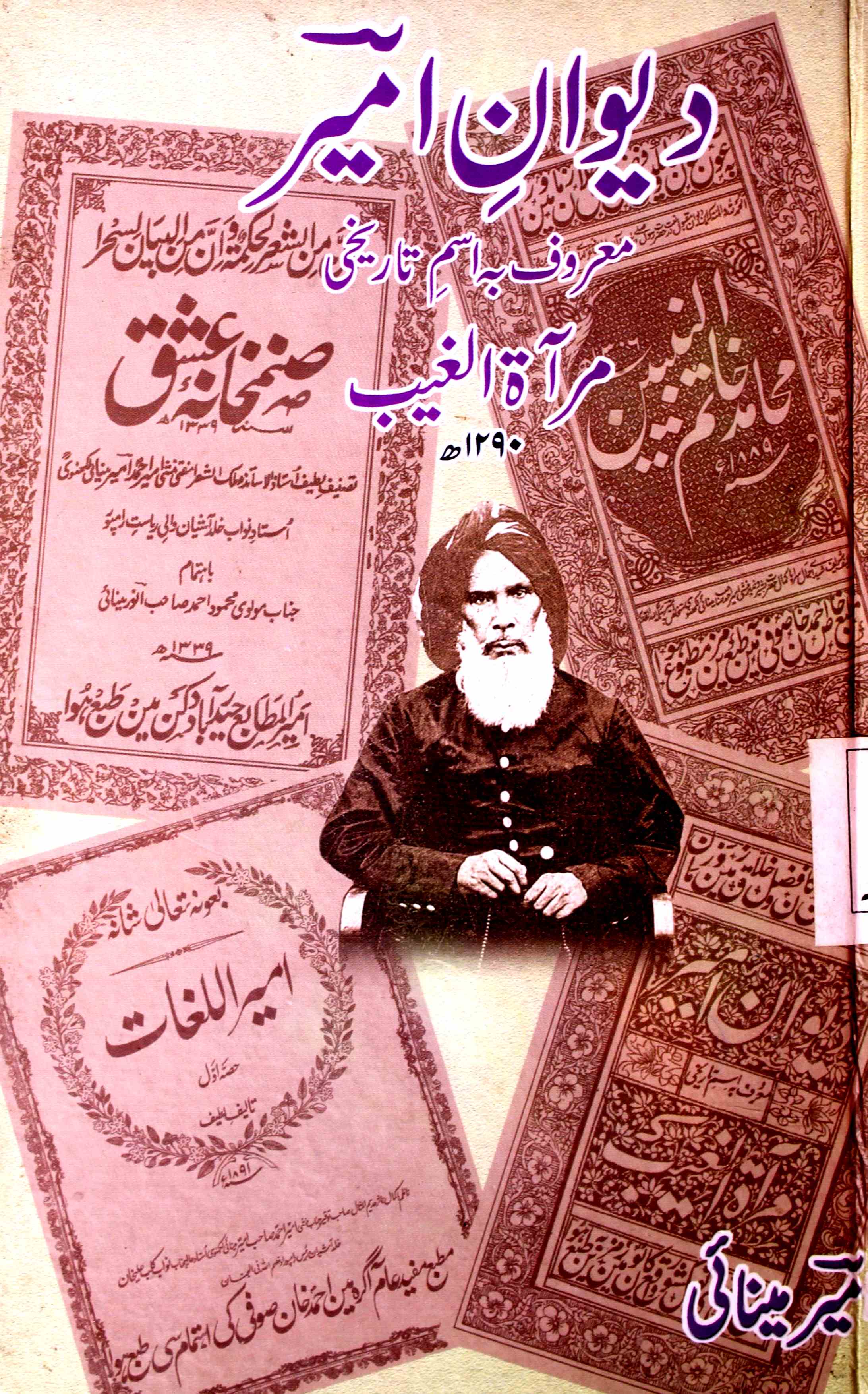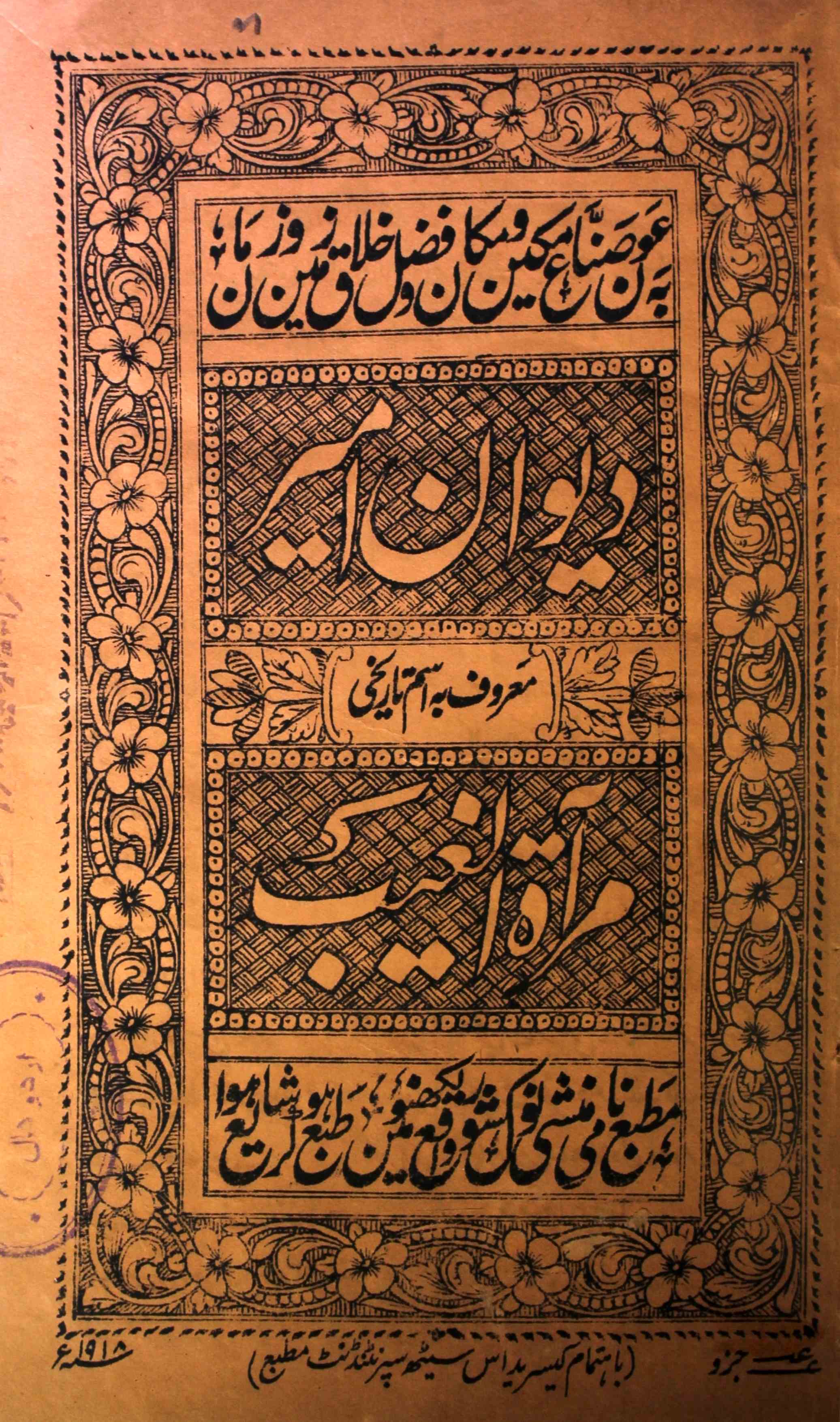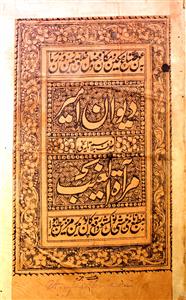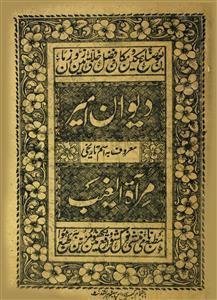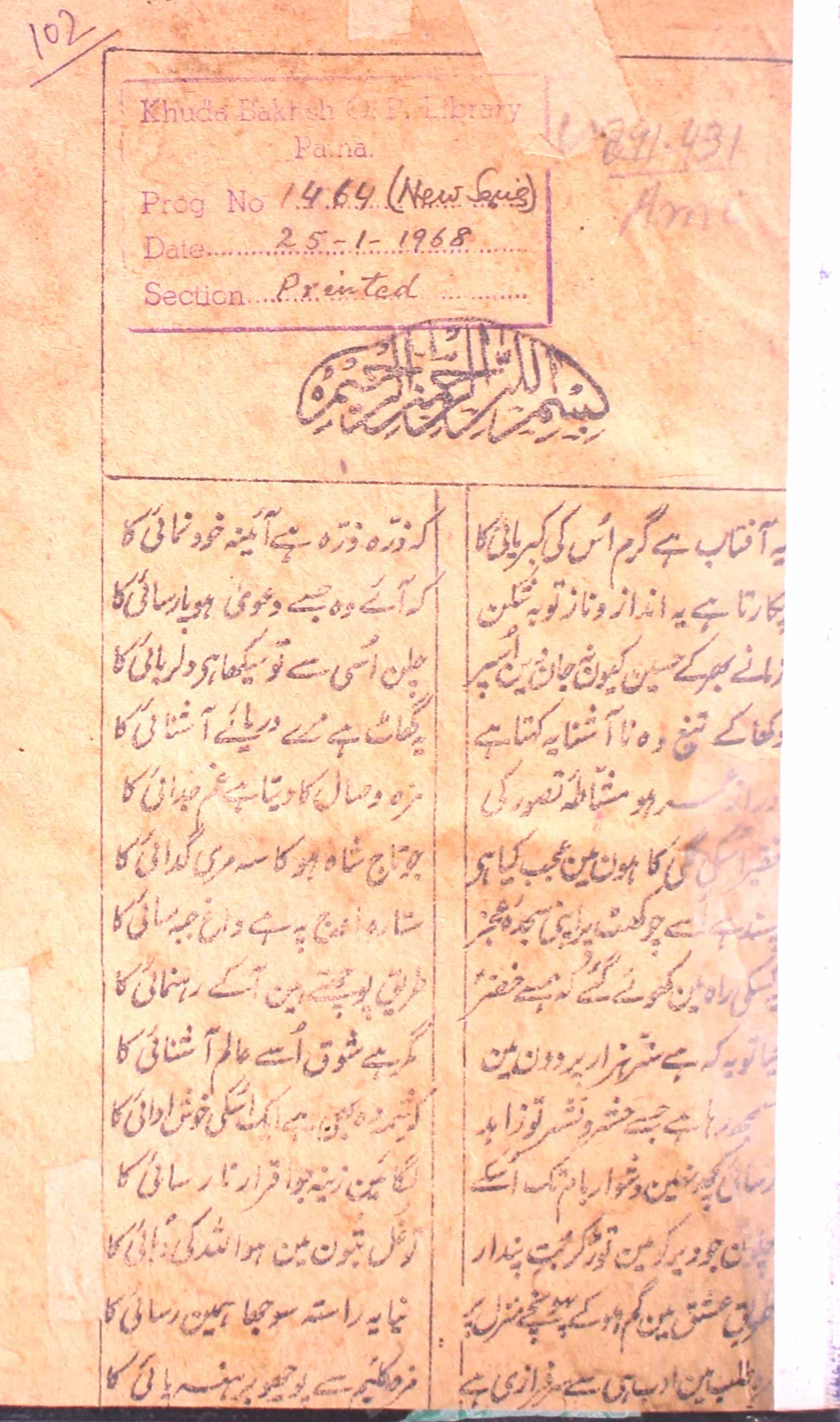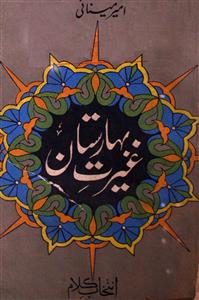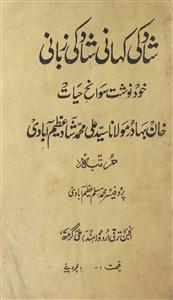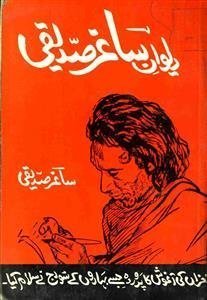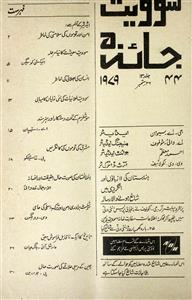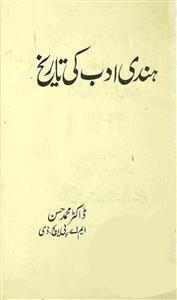 For any query/comment related to this ebook, please contact us at haidar.ali@rekhta.org
For any query/comment related to this ebook, please contact us at haidar.ali@rekhta.org
About The Book
امیر مینائی اردو شاعری کے مشہور و معروف شاعر و ادیب ہیں ۔ انھوں نے شاعری کی مختلف اصناف میں طبع آزمائی کی ہے لیکن ان کا نعتیہ کلام بے حد مقبول ہواہے۔لیکن امیر مینائی لغت نویس اور زبان دان بھی ہیں۔زیر نظر ان کی مشہور تصنیف "امیرللغات" ہے ۔جس کی دو جلدیں منظر عام پر آچکی ہیں۔اردو لغات میں اس کو ممتاز مقام حاصل ہے۔اکثر اردو داں طبقہ کا اتفاق ہے کہ اگر امیر مینائی کو زندگی نے مہلت دی ہوتی تو وہ اس کی باقی جلدیں بھی مکمل کردیتے۔یہ اردو کی مستند ترین لغات میں سے ایک ہے۔جو صرف الف ممدودہ اور الف مقصورہ تک محدود ہے۔اس کے باوجود بھی یہ جلدیں بھی بے حد اہمیت کے حامل ہیں جس میں امیر مینائی نے ایک ایک لفظ کی سند میں کئی کئی اشعار نقل کیے ہیں۔ یہ جلد دوم ہے۔
About The Author
An eminent Urdu Poet and contemporary of Dagh Dehlvi, Ameer Minai was widely acclaimed for penning the ghazal "Sarakti jaye hai rukh se naqaab aahista aahista". He was born at Lucknow to Sheikh Karam Mohammad Minai, who was a direct descendant of Shah Makhdoom Minai, a renowned Muslim saint of 15th century. In addition to being a scholar of Urdu and Persian, he had thorough knowledge of Arabic, Sanskrit theology and medieval logic. After the revolt of 1857, Ameer migrated to Rampur, where he lived a life of comfort, under the patronage of Nawab Yusuf Ali Khan and his successor, Nawab Kalab Ali Khan. It was at Rampur where he had spent the larger part of his life and achieved a lot of fame as a poet. After the death of Nawab Kalab Ali Khan, Ameer had to go to Hyderabad, where he was given a warm welcome by the Nizam. However, destiny had different plans for him. He died in 1900 after a brief illness. Among all his pieces of work, the greatest was "Ameer-ul-Lughaat", a comprehensive Urdu-to-Urdu dictionary that he had intended to compile in eight volumes. Unfortunately, only two volumes were compiled and published in 1891 and 1892 respectively. Even though he was extremely skilled in various genres of poetry, ghazals brought him most of the fame. These were inclusive of Mirat-ul-Ghalib (1868), Gauhar-e-Intekhab (1896) and Sanam-khana-e-Ishq (1896). He died in the year 1900 in the city of Hyderabad.
 For any query/comment related to this ebook, please contact us at haidar.ali@rekhta.org
For any query/comment related to this ebook, please contact us at haidar.ali@rekhta.org
Write a Review
Jashn-e-Rekhta 10th Edition | 5-6-7 December Get Tickets Here
